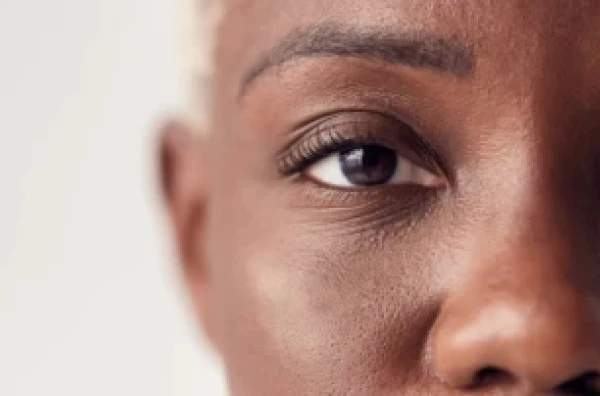Diabetes is a chronic condition that affects millions of people worldwide, with its prevalence steadily rising. One of the complications associated with diabetes is blurry vision, a symptom that can significantly impact the quality of life for those affected. In this blog, we will delve into the causes, symptoms, and most importantly, the treatment options for diabetes-related blurry vision.
Contents
Understanding the Connection

Diabetes-related blurry vision is often intricately linked to a specific complication known as diabetic retinopathy. The condition arises due to prolonged exposure to elevated blood sugar levels, leading to damage to the blood vessels in the retina—the light-sensitive tissue situated at the back of the eye. Here are some key aspects of Diabetes related blurry vision:
- Diabetic Retinopathy Overview: Diabetic retinopathy is a diabetic eye disease that affects the small blood vessels in the retina. Over time, high levels of glucose in the bloodstream weaken and damage these blood vessels.
- Impact on Retinal Blood Vessels: Continuous exposure to high blood sugar levels causes the blood vessels in the retina to become weak, leading to leakage of fluid and blood into the surrounding tissues. This process triggers changes in the retina, affecting its ability to transmit clear visual signals to the brain.
- Development of Microaneurysms: As the blood vessels weaken, microaneurysms—small bulges or pouches—may form. These can further contribute to fluid leakage and compromise vision. The accumulation of fluid in the retina can result in swelling and distortion of its normal architecture.
- Progression to Macular Edema: In some cases, the condition progresses to macular edema, where fluid accumulates in the macula—a critical area of the retina responsible for sharp, central vision. Macular edema can lead to significant visual impairment and is a common cause of diabetic-related blurry vision.
- Abnormal Blood Vessel Growth: In an attempt to compensate for the damaged blood vessels, the retina may trigger the growth of abnormal blood vessels. However, these vessels are fragile and prone to bleeding, exacerbating vision problems.
Different Treatment Options for Diabetes Blurry Vision
1. Blood Sugar Control
Maintaining optimal blood sugar levels is paramount in preventing and managing diabetes-related blurry vision. The connection between elevated blood sugar and diabetic retinopathy underscores the importance of vigilant control. Consistent blood sugar control mitigates the stress on retinal blood vessels, preventing their weakening and subsequent leakage.
Regular monitoring, adherence to a diabetes management plan, and adjustments to medication are pivotal components. This approach not only reduces the risk of blurry vision but also addresses the broader spectrum of diabetes complications.
2. Lifestyle Modifications

Adopting a healthy lifestyle significantly impacts diabetes management and, consequently, helps alleviate blurry vision.
- A balanced diet, regular exercise, and weight management play a dual role by positively affecting overall health and specifically supporting eye health.
- Nutrient-rich foods benefit the eyes, while physical activity enhances circulation, reducing the risk of complications.
- Weight management contributes to blood sugar control, indirectly benefiting vision.
Lifestyle modifications serve as a foundation for comprehensive diabetes care, reinforcing the importance of holistic well-being in preserving vision.
3. Eye Examinations
Regular eye examinations are indispensable for the early detection of diabetic retinopathy, a precursor to blurry vision. Routine check-ups conducted by optometrists or ophthalmologists allow for the identification of retinal changes before symptoms become severe.
Timely intervention, often in the form of laser therapy or injections, becomes possible with early detection, preventing the progression of retinopathy and preserving vision. These examinations serve as a proactive measure, highlighting the significance of preventive healthcare in managing diabetes-related complications.
4. Medications
Anti-inflammatory medications are prescribed to manage inflammation in the eyes associated with diabetic retinopathy. These medications contribute to retinal health by addressing the underlying inflammatory processes.
Additionally, anti-VEGF medications play a crucial role in maintaining the integrity of retinal blood vessels by targeting abnormal vessel growth. This dual approach through medication underscores the complexity of managing diabetes-related blurry vision, requiring tailored strategies to address the multifaceted nature of the condition.
5. Surgery
In advanced cases of diabetic retinopathy, surgical intervention such as vitrectomy may be considered. Vitrectomy involves the removal of the vitreous gel in the eye and addresses damaged blood vessels. This surgical approach aims to prevent further retinal damage and is considered when other treatments prove insufficient.
While surgery is not the initial line of treatment, its inclusion in the spectrum of options highlights the severity and complexity of advanced diabetic retinopathy.
6. Laser Therapy
Laser therapy serves as a targeted and non-invasive method to address abnormal blood vessel growth in diabetic retinopathy. By using laser beams to seal or shrink these vessels, the therapy prevents further leakage, preserving central vision. Multiple sessions may be required, emphasizing the need for a comprehensive treatment plan. Laser therapy plays a crucial role in managing diabetic retinopathy and mitigating the risk of complications such as macular edema.
7. Intraocular Injections
Intraocular injections of anti-VEGF medications directly into the eye provide a localized and effective approach to managing abnormal blood vessel growth. These injections contribute to the stability of retinal blood vessels, halting the progression of diabetic retinopathy. The targeted nature of intraocular injections underscores the advancements in treatment modalities, offering precise interventions to address specific aspects of retinal damage.
8. Blood Pressure Management
Controlling blood pressure is vital for individuals with diabetes, as hypertension can exacerbate retinal damage. Managing blood pressure reduces the stress on delicate retinal blood vessels, complementing other treatment strategies and preserving vision. The link between blood pressure and diabetic retinopathy highlights the interconnectedness of various health parameters in managing the complexity of diabetes-related complications.
9. Artificial Tears and Lubricating Eye Drops
Addressing the discomfort associated with blurry vision, artificial tears, and lubricating eye drops provide relief from dryness and irritation. Regular use enhances overall comfort by reducing sensations of grittiness, contributing to improved vision quality.
While these may not directly treat the underlying retinal changes, they play a supportive role in managing symptoms and enhancing the overall well-being of individuals with diabetes.
10. Telemedicine and Remote Monitoring
The integration of telemedicine into diabetes management brings forth new dimensions in healthcare accessibility. Remote monitoring of blood sugar levels and virtual consultations with healthcare professionals offer convenience and timely interventions. This approach becomes increasingly relevant in preventing complications, such as blurry vision, by ensuring consistent and effective diabetes management.
Telemedicine enhances accessibility to healthcare, particularly for individuals who may face challenges in regular in-person visits, showcasing the evolving landscape of healthcare delivery in the context of chronic conditions like diabetes.
Sources To Get Treatment for Diabetes Blurry Vision
When seeking information and support for diabetes-related blurry vision, it’s important to turn to reputable online sources that provide accurate and up-to-date information. Here are some reliable websites that offer valuable resources on diabetes, its complications, and guidance on managing blurry vision:
- American Diabetes Association (ADA): The ADA is a well-respected organization that offers comprehensive information on diabetes, including its complications. Their website provides resources, articles, and guides for managing various aspects of diabetes, including eye health and blurry vision.
- National Institute of Diabetes and Digestive and Kidney Diseases (NIDDK): As part of the National Institutes of Health (NIH), NIDDK provides reliable information on diabetes, its complications, and research updates. Their resources cover a wide range of topics, including diabetic eye diseases and vision-related issues.
- Diabetes Mantra: Diabetes Mantra is renowned for its trustworthy medical information. Their website offers detailed articles on diabetes, diabetic retinopathy, and blurry vision. It includes expert insights, patient care information, and treatment options.
- WebMD – Diabetes Health Center: WebMD is a widely used platform for health information. Their Diabetes Health Center covers various aspects of diabetes, including complications like blurry vision. It provides articles, expert advice, and user-friendly resources.
- Centers for Disease Control and Prevention (CDC): The CDC offers authoritative information on diabetes, focusing on prevention, management, and complications. Their diabetes section includes resources on eye health, making it a valuable source for understanding and addressing blurry vision.
- Joslin Diabetes Center: Joslin Diabetes Center is an institution dedicated to diabetes care and research. Their website provides educational materials, articles, and insights into various aspects of diabetes, including eye complications.
- Healthline – Diabetes Hub: Healthline’s Diabetes Hub is a comprehensive resource for diabetes-related information. It covers topics ranging from basic to advanced aspects of diabetes care, including eye health and vision issues.
- MedlinePlus – Diabetic Eye Problems: MedlinePlus, a service of the U.S. National Library of Medicine, provides a dedicated section on diabetic eye problems. It offers reliable information in a user-friendly format, making it accessible for individuals seeking information on blurry vision associated with diabetes.
Always consult with healthcare professionals for personalized advice and guidance. These online resources can serve as supplementary information to enhance your understanding of diabetes-related blurry vision and its management.
Tips To Get Diabetes Blurry Vision Treatment

If you are experiencing blurry vision due to diabetes (diabetic retinopathy), it’s crucial to seek appropriate treatment promptly. Here are some tips to guide you in managing diabetes-related blurry vision:
- Consult with Specialists: Consult with specialists, including ophthalmologists who specialize in diabetic eye care. They can provide targeted treatment options and recommendations tailored to your specific condition.
- Explore Treatment Options: Discuss various treatment options with your healthcare team. Depending on the severity of diabetic retinopathy, treatments may include laser therapy, intraocular injections, or surgical procedures like vitrectomy.
- Educate Yourself: Stay informed about diabetes and its complications. Understanding the relationship between diabetes and blurry vision empowers you to make informed decisions about your treatment and lifestyle choices.
- Support Groups: Join diabetes support groups or forums where you can connect with others experiencing similar challenges. Sharing experiences and tips with peers can provide emotional support and practical advice for managing diabetes and its associated complications.
Conclusion
Diabetes-related blurry vision is a serious concern that demands attention and proactive management. By prioritizing blood sugar control, adopting a healthy lifestyle, and undergoing regular eye examinations, individuals with diabetes can mitigate the risks associated with diabetic retinopathy. Early intervention and a collaborative approach between patients and healthcare professionals are essential to preserving vision and maintaining a high quality of life for those living with diabetes.
Do you want to get rid of diabetes? Join our online diabetes treatment program and reverse Diabetes naturally through lifestyle changes such as a Personalized Diet plan, Exercise, Yoga, dieticians, and health coaches.

